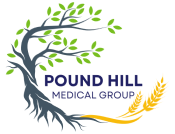Repeat Prescriptions
Requests for repeat prescriptions should be written or submitted online.
Watch a video about how to order a prescription on the NHS App
We do not accept requests over the telephone due to the risk of errors.
Non Repeat Prescriptions
If you have been requested by a consultant or hospital to see your GP for medication, we will still need your written request or the request to be submitted online, in addition to a letter from the consultant detailing your medication.
Written Requests
Medication Reviews
You will be asked from time to time to book an appointment with the doctor to review your prescription before another one is issued. The review date is shown on your repeat list.
Collecting your prescription
Please allow three working days before collection. If a request is received after 6.30pm then the 3 days will run from the beginning of the next day that the practice is open.
Nominated Pharmacy
Prescription charges
Find out more about prescription charges (nhs.uk).
What to do with old medicines
Take it to the pharmacy you got it from or bring it in to the surgery. Do not put it in your household bin or flush it down the toilet.
About pharmacists
Pharmacists can offer advice on a range of illnesses, such as coughs, colds, sore throats, ear infections and aches and pains.
They can also give advice about medicines. This includes how to use your medicine, worries about side effects or any other questions you have.
If they cannot help you themselves, they can refer you to a GP or other health professional.
Treatment from a pharmacist
Pharmacists can suggest treatments that do not need a prescription for a range of conditions.
Most pharmacies can also offer prescription medicine for some conditions, without you needing to see a GP or make an appointment. This is called Pharmacy First.
Conditions they can offer prescription medicine for are:
- impetigo (aged 1 year and over)
- infected insect bites (aged 1 year and over)
- earache (aged 1 to 17 years)
- sore throat (aged 5 years and over)
- sinusitis (aged 12 years and over)
- urinary tract infections (UTIs) (women aged 16 to 64 years)
- shingles (aged 18 years and over)
If you are not within these age ranges, a pharmacist can still offer advice and support decisions about self care treatment with over the counter medicines, but you may need to see a GP for treatment.
If you go to a pharmacy with one of these conditions, the pharmacist will offer you advice, treatment or refer you to a GP or other health professional if needed. They will also update your GP health record, but your information will not be shared with anyone else.
Most pharmacies can provide prescription medicine for these conditions but contact them before visiting to check.
Other services that may be available at a local pharmacy include:
- advice from a pharmacist after contacting NHS 111 or a GP
- chlamydia screening and treatment
- advice and help on how to stop smoking
- cholesterol and blood sugar testing
- the substance misuse service, including needle and syringe exchange schemes
- advice and help on how to manage your weight
Ask a local pharmacist to find out what services they offer.
Getting help with new medicines
When you start a new medicine for a long term condition you can have up to 3 appointments with a pharmacist to:
- answer any questions you have
- help you use the medicine safely
- make sure that the medicine’s right for you
Getting contraception
Some pharmacies may offer the contraceptive pill for free without a prescription. If you are aged 18 years or older, you can also buy the progesterone-only pill from most pharmacies.
Some pharmacies offer the emergency contraceptive pill for free. If you’re aged 16 or over, you can also buy it from most pharmacies.
Get a free blood pressure check
Some pharmacies offer a free blood pressure check.
